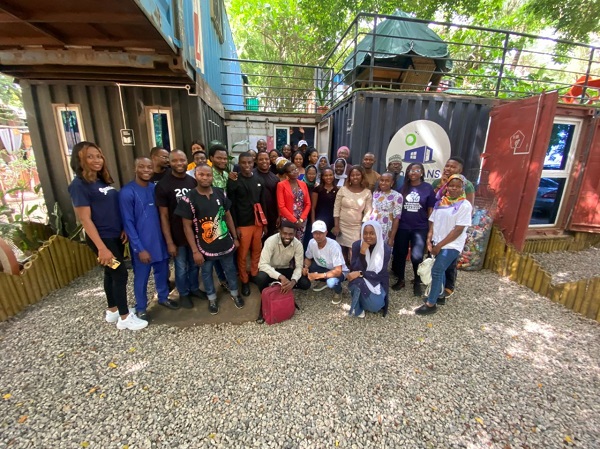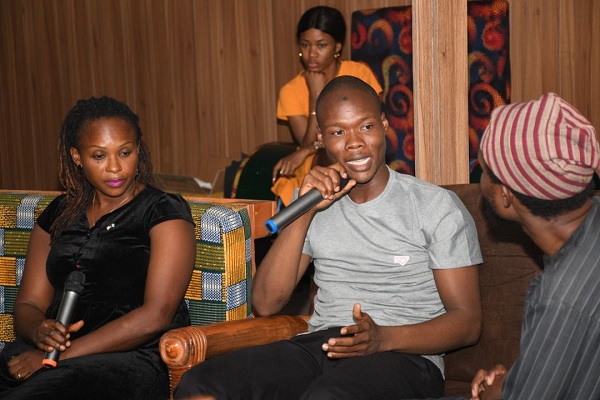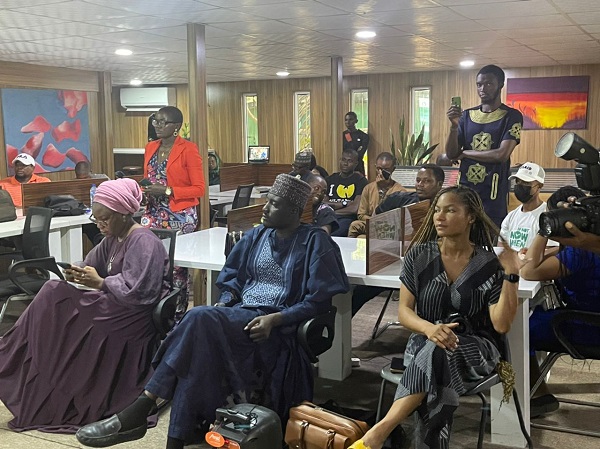
Nigerian youths deliberated on issues to be presented at a crucial international environmental meeting billed to hold in Stockholm, Sweden, between June 2 and 3, 2022, themed: “Stockholm+50: a healthy planet for the prosperity of all – our responsibility, our opportunity”.
Speaking to Science Nigeria during the Nigeria youth pre-conference information session hosted by Community Action Against Plastic Waste (CAPws) in partnership with the Federal Ministry of Environment, the Government of Sweden, United Nation’s Development Programme (UNDP), the CANS, FAM4Future, Friedrich Ebert Stiftung, empower.eco and other partners in Abuja, the CAPws partnership director, Fatima Magaji said the meeting is aimed at empowering youths to reimagine environmental activism.
“The concept is for us to bring the stakeholders, people that are in the environment space, government officials, private sector, tech and the public to come in here and have these discussions and then proffer solutions to problems that are local to us; that’s the whole point of the pre-conference, as we prepare for the main meeting next week in Stockholm, Sweden.
“We want action. We don’t want another conference where people come and sit and have discussions. We want solutions that is why we have brought stakeholders to come and discuss our issues,” she said.
Magaji pointed out that one of the major menaces Nigeria is currently facing is the issue of plastic pollution. “It is one of the most immediate threats to our environment.
“It is estimated that in 2050, there will be more plastics than fishes in the ocean. Due to [a] lack of regulation organisations and corporations are pumping plastics into the environment and there is little to no responsibility for how it is being managed, procured back to be reused. Instead, they are just pumping new products every day. The whole point is that we need stronger policies to help our environment because these plastics are a major issue.
“The goal is for everybody to play a part in this process of tackling plastic pollution. [We need the] government, civil society organisations, private individuals, activists and children.”

Similarly, the coordinator, media and public relations, Eco-Green Africa, Lawal Adeghoyega, said the pre-conference information session provides a platform to interact with Nigerian delegates to the Stockholm Assembly, to prep them for key issues on Nigeria’s front burner in terms of environmental challenge.
We have singled out plastic pollution as a key factor that we want to bring to the front burner. If there are more plans for awareness/managing the plastic waste generated [we will not be where we are].
“Plastic in Nigeria now is a menace because it has found its way [in]to every form of our lives. Starting from the pure water sachet that we drink down to the bottle of cosmetics we apply in the evening. At this point, if we do not declare a state of emergency, the plastic that we’re having will overwhelm the soil.
“We must strongly discourage the single-use plastic system for a start. There is a need for alternatives. If the government says it is banning plastics, there have to be alternatives. There is a need to encourage other startup hubs to bring up more alternatives to plastics so we can promote such alternatives and reduce the use of plastic,” Adeghoyega said.
Magdalene Amadi, a member of the Stockholm +50 youth taskforce, said based on consultations, Nigerian youths have been able to pin down their demands on pertinent issues around climate change and environmental degradation.
According to her, plastic pollution has been identified as one of the leading environmental challenges in Nigeria.
Amadi, the director, American Football for African Mission, said Nigeria has the opportunity to be at the forefront of this policy paper-writing which youths globally would present at the Assembly
“Today, we are talking about plastic pollution because it is one of the biggest problems we have. It litters the environment and because it is non-degradable it is a big menace.
“We need to recycle. We need to sensitise Nigerians on the implications and how we can address these problems,” she added.

Another member of the Stockholm +50 youth taskforce, Ismail Ali, highlighted that the duo would be taking the message of environmental activists from Nigeria to the global body for deliberations, especially interventions from the youths.
Ismail, an executive of Youth for our Planet, said issues deliberated upon in the meeting include plastics, flooding, biodiversity loss, desertification and other issues related to climate change.
He advocated for the government to mainstream youths on the issue of policy and decision-making around environmental issues because they have a lot to contribute.
Earlier, the programme officer, digital climate, European Union Mission to Nigeria, Dr. Sabri Mekaoui, expressed optimism at the fervour of the youth organisations. He further tasked them to come up with a long-term agenda that can be executed over a timeframe to tackle the nation’s environmental issues.
“[From] what I see today here, where a lot of young people are collectively grouping to address the bigger issue. I don’t think they are discussing just plastics here. They are discussing the long-term, Stockholm conference. They are already talking about COP 27. I see people involved and many organisations represented here.
“This is a sign that the youths are already very organised. It is not about how they are organised or the structure they are working in. The thing now is they need to put this into action. They need to jointly write a single document. I am just suggesting from a personal perspective. They need to commit themselves to achieving, maybe, seven/eight points within the next 10 years. I think this is how they need to organise,” he added.


